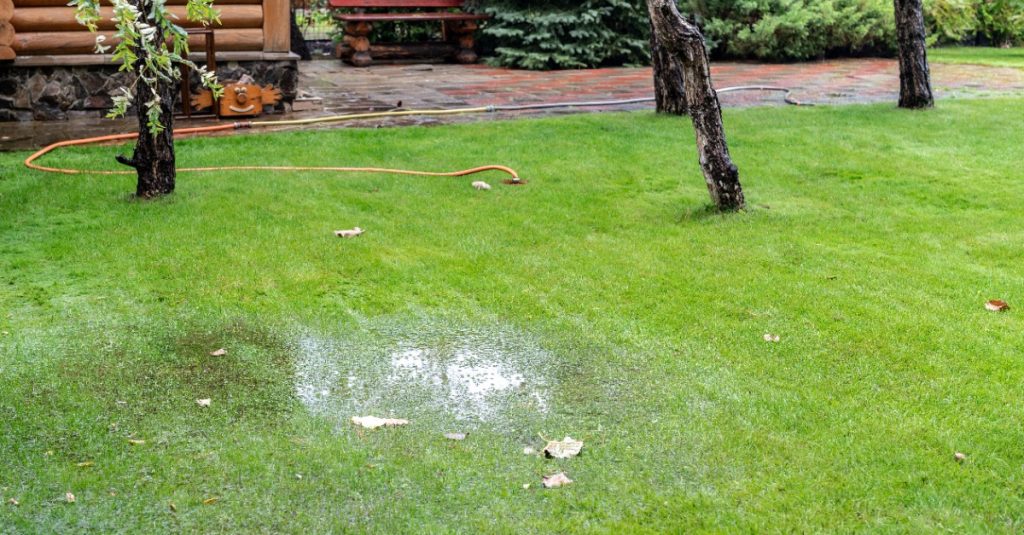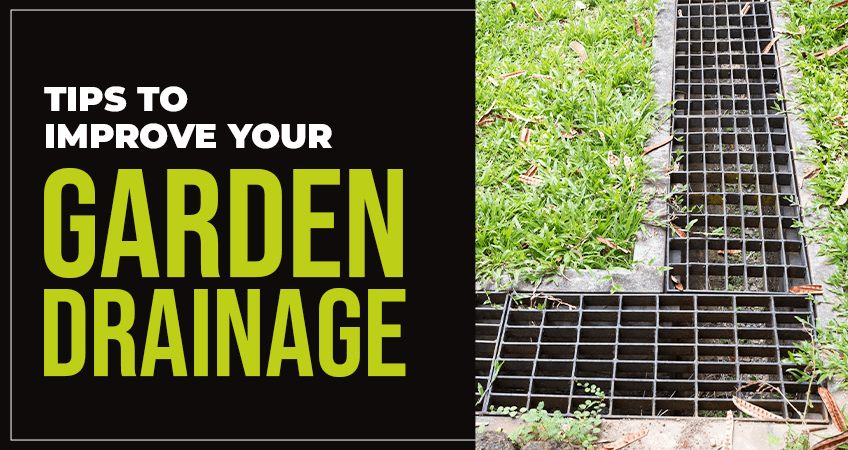The importance of a properly functioning drainage system in your garden cannot be overstated. Effective garden drainage safeguards your cherished green spaces from standing water, prevents erosion, and maintains optimal soil conditions for your plants.
But perhaps more importantly, it helps protect the structural integrity of your home. Ineffective garden drainage systems can cause flooding in your garden, leading to expensive repair work and potential damage to your property. Therefore, investing in practical plumbing solutions is essential to maintain the health and wellbeing of your garden and home.
In this blog post, we will discuss various methods offered by plumbing companies that can improve garden drainage.
What causes poor drainage in your garden?
Before we dive into some garden drainage solutions, it’s essential to understand the causes of poor garden drainage. Several factors contribute to inadequate water flow in your garden, such as:
- Soil composition: Heavy clay soil and compacted soil can hinder water absorption and cause standing water.
- Slope: A flat landscape or lack of proper grading can result in stagnant water.
- Clogged gutters: Clogged gutters can cause water to overflow and pool around the foundation of your home.
- Lack of drainage systems: Without proper drainage systems, excess water has nowhere to go and can lead to flooding.
Smart tips to to improve garden drainage

Now that we have identified the common causes of poor garden drainage let’s explore some plumbing solutions that can help mitigate these issues.
1. Install french drains
French drains, also known as land drains, are an unobtrusive and efficient solution for diverting excess water from your garden. This system comprises a trench filled with gravel and a perforated pipe that collects and channels water away from the problem area, often dispersing it to a lower or more absorbent part of your garden.
2. Implement a soakaway drainage system
Soakaways are underground water storage systems that effectively collect and disperse excess surface water to the surrounding soil. When properly designed and installed, they naturally drain excess water, keeping your garden dry and protected. Soakaways are best suited to improve drainage in gardens with good soil porosity.
3. Utilise surface drains and channel drainage
Surface or channel drains are shallow trenches lined with a pre-cast plastic or metal trough. They are useful for capturing excess water from paved areas in your garden and redirecting it to a more suitable location. Customise these drainage systems by selecting the style and load-bearing capacity tailored to your specific needs.
4. Incorporate swales and berms
Swales and berms are an alternative method of diverting water, especially on sloped surfaces. Swales are shallow, wide trenches designed to slow water flow and direct it away from your garden’s vulnerable or flooded areas. Berms, on the other hand, are elevated ridges or embankments that help redirect water flow and can also add visual appeal to your garden.
5. Set up proper gutter systems
Gutters play a crucial role in directing rainwater away from your home and garden. Installing a proper gutter system with downspouts that lead water to a dedicated drainage area or rain garden can reduce the risk of waterlogged soils. Storm drains can also help you with your garden drainage problems. A storm drain is an underground piping system that connects to a catch basin, which captures excess water and redirects it away from your home.
6. Consider catch basin and sump basin installations
Catch basins are essential components in garden drainage systems for preventing the entry of debris and pollutants. Acting as a filtering mechanism, they collect sediment and contaminants, thereby protecting your drainage system from clogging. Additionally, sump basins collect and store excess water and then pump it away to a suitable location, providing valuable protection against flooding.
7. Use rainwater harvesting and drainage systems
An ingenious yet practical method to manage excess water in your garden is to install a rainwater harvesting system. Collect and store rainwater from your roof, gutters, or other impermeable surfaces in a water butt or underground tank. Not only can this method prevent garden flooding, you can also use the stored water for irrigation, flushing toilets, or even washing your car.
8. Explore the idea of a rain garden
Incorporating a rain garden into your landscape provides an eco-friendly and aesthetically pleasing drainage solution. A rain garden is a shallow depression planted with water-loving vegetation that captures, absorbs, and filters runoff from impervious surfaces such as roofs and driveways. This low-maintenance approach helps improve garden drainage by reducing surface runoff.
9. Consult with a professional about an effective garden drainage system
When seeking to improve garden drainage, it is advisable to consult with experienced professionals. They can assess your specific requirements, taking into account factors such as soil type, landscape, and climate, to recommend the most effective garden drainage system for your unique situation.
10. Routine drainage maintenance and inspection services
Installing drainage systems in your garden shares a similarity with installing a central heating system in your home; that’s to say it needs to be maintained and serviced for optimal performance.
That’s why you should look to seek out the services of a plumbing company at least once every 2 years. They will conduct routine checks, cleaning, and repairs to prevent drain blockages, leaks, and other drainage-related issues.
Invest in effective drainage system for your garden
In conclusion, investing in an effective drainage system for your garden can help prevent potential damage to plants, structures, and even the foundation of your home.
By understanding the common causes of poor garden drainage and exploring various plumbing solutions, you can keep your garden healthy and thriving while avoiding costly repairs in the long run.
Don’t hesitate to seek professional advice and maintenance services to ensure your garden stays well-drained for years to come.
 01732 667 688
01732 667 688


